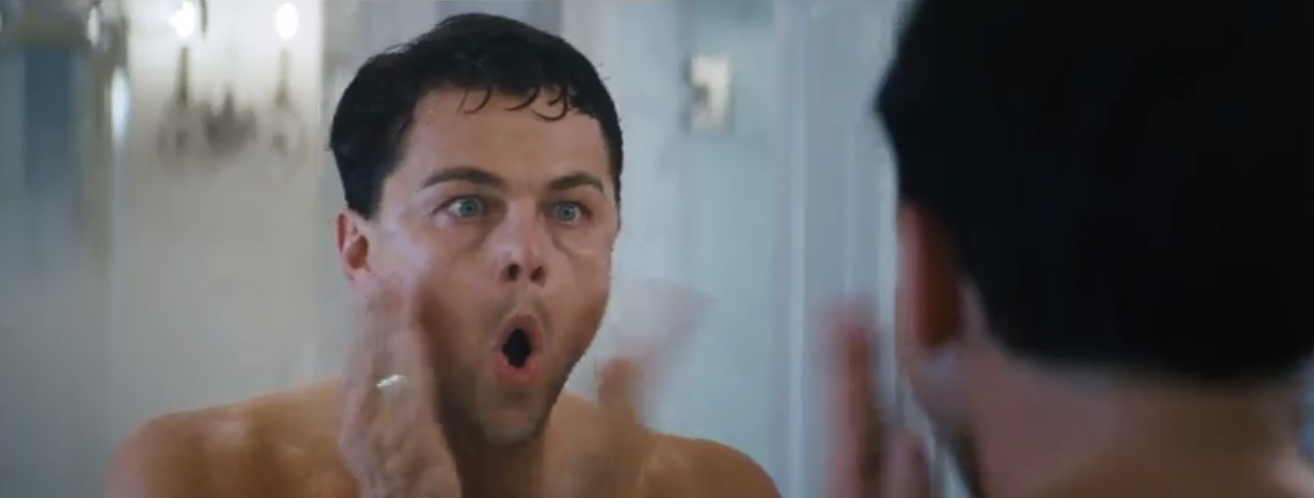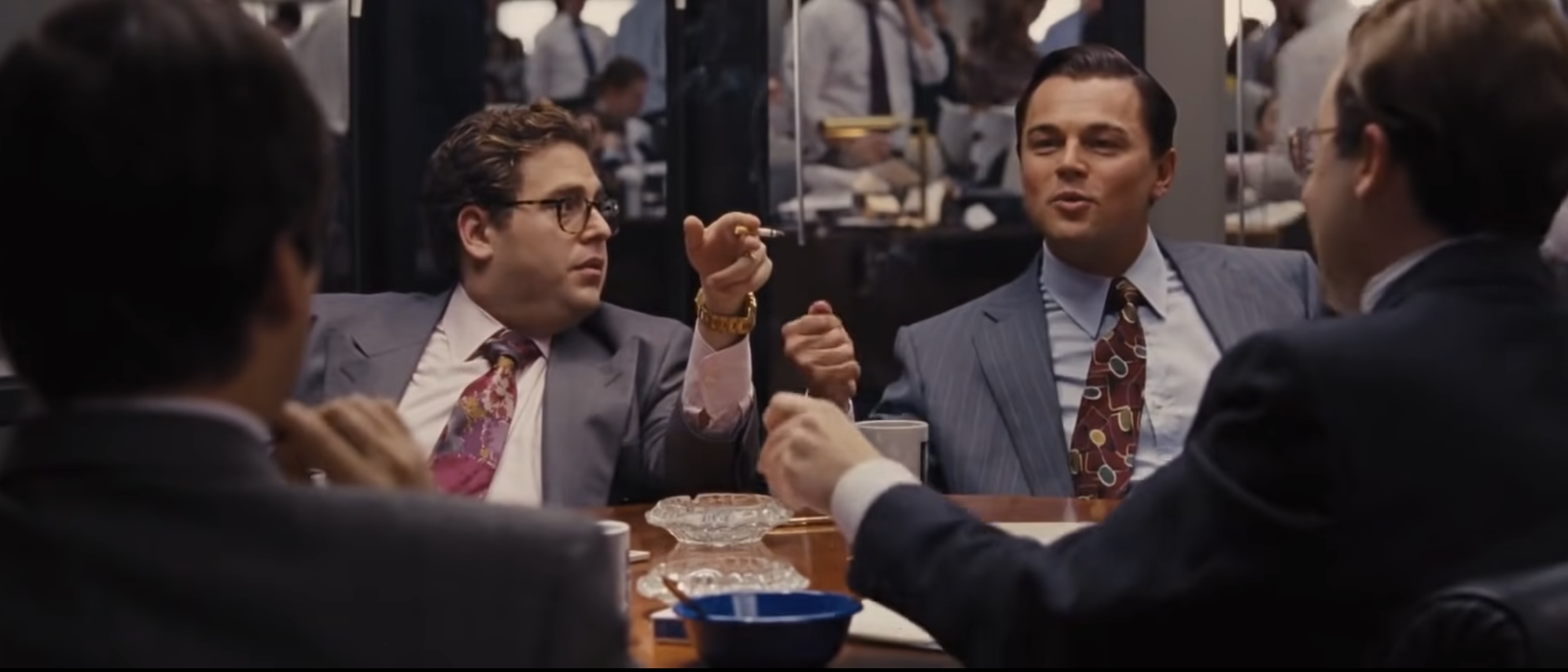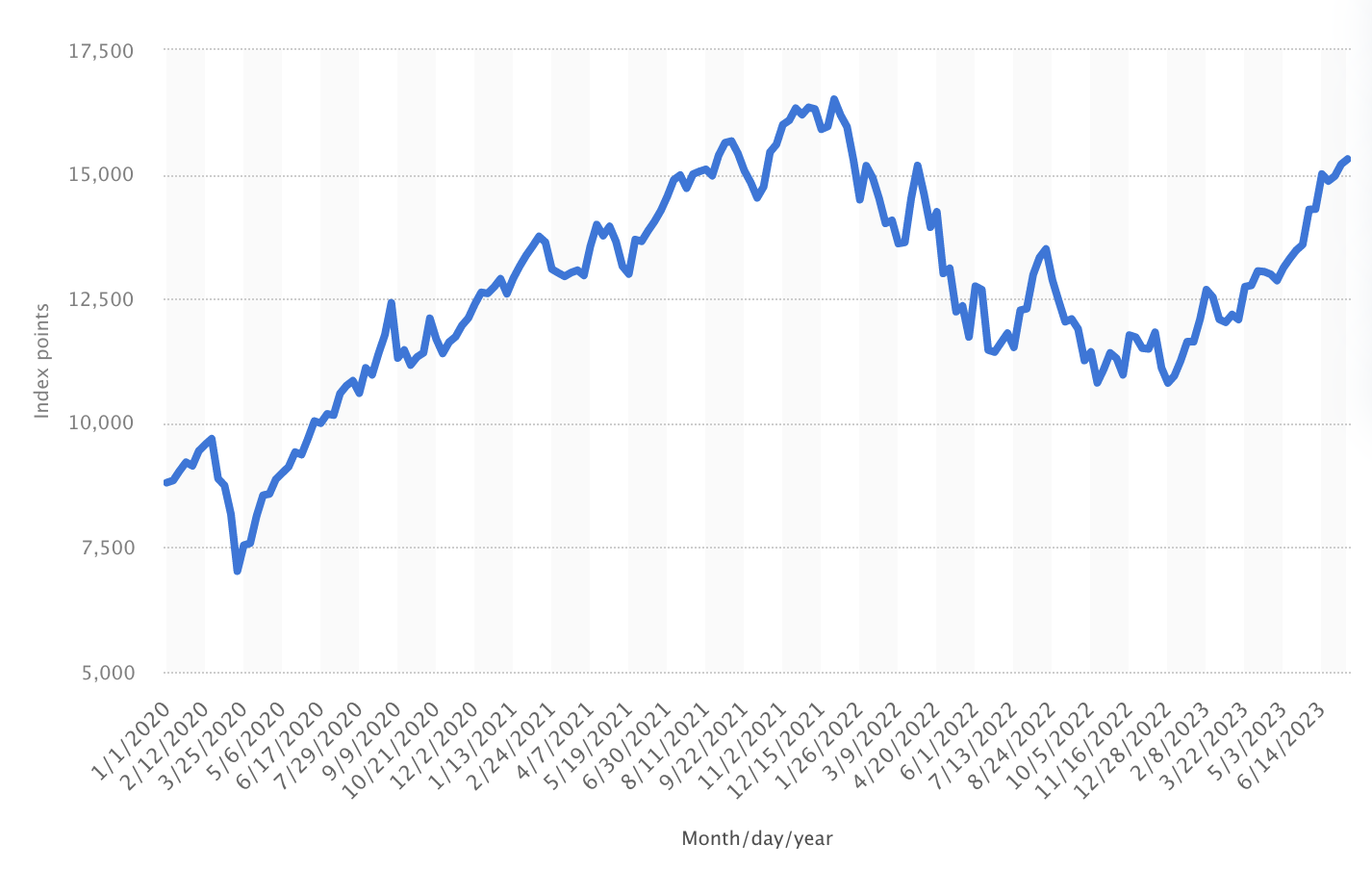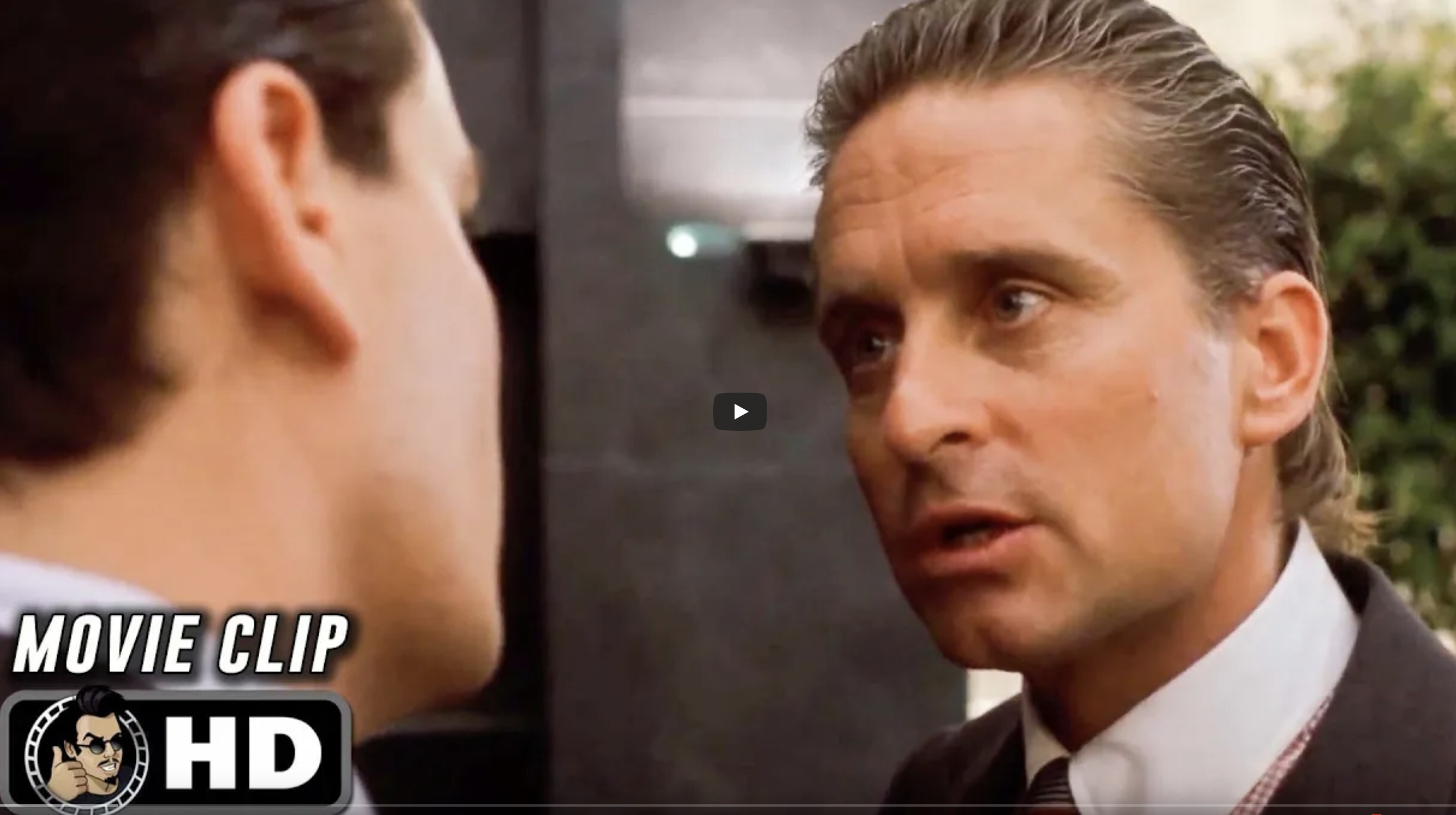The Wolf of Wall Street: A Symphony of Excess
 Source: IMDB.com The Wolf of Wall Street
Source: IMDB.com The Wolf of Wall Street
If you’re seeking a cinematic dive into the world of trading, look no further than the high-octane drama, The Wolf of Wall Street. The cinematic representation of the world of finance, as directed by the legendary Martin Scorsese, showcases the life of Jordan Belfort. Here’s a gentleman with an insatiable appetite for wealth, power, and excess. With Belfort, the word ‘enough’ simply doesn’t exist.
Set in the neon lights of the early 1990s, Belfort (played with an insatiably wild fervour by Leonardo DiCaprio), alongside his loyal wingman, Donnie Azoff, launches the brokerage firm Stratton Oakmont. An authentic ‘rags-to-riches’ tale, the film captures their meteoric rise from a modest team of 20 to a formidable battalion of over 250 brokers.
As the dollars start pouring in, so do the controversies. The fame, the fortune, the reckless indulgence paints a dizzying picture of Wall Street’s decadent culture during that era. Exorbitant expenditure, raw ambition, and merciless greed are out on full display.
But as is the case with all things too good to be true, Belfort’s empire wasn’t built purely on hard work and genius. Deception, manipulation, and excess became the cornerstones of his business empire. As the company scales new heights, initial public offerings (IPOs) start pouring in, and Stratton Oakmont becomes the go-to for businesses to make their debut on Wall Street.
Yet, amidst the blinding lights of success and extravagance, the film poses an intriguing question – one that every trader and investor might find themselves pondering at some point: What are indices, and how do you trade them? Indices, being a collection of stocks representing a market or a section of a market, offer a sneak peek into the broader market trends and their health.
 Source: The Wolf of Wall Street YouTube
Source: The Wolf of Wall Street YouTube
Trading them can serve as a lucrative venture or a hedge against potential risks. But as The Wolf of Wall Street subtly points out, even such complex financial instruments can be manipulated for personal gains when placed in the hands of the morally corrupt. And this team of traders in WoW certainly sways to the dark side.
While the narrative predominantly rides on Belfort’s extravagant lifestyle, including wild office parties that epitomized hedonism, it also delves deep into his intricate plans to stash away his riches.
His feature on Forbes as The Wolf of Wall Street cements his status and alerts the ever-watchful eyes of the Federal Bureau of Investigation (FBI). The cat-and-mouse chase that ensues is not just about outsmarting the law but a broader reflection on morality, the temptations of easy money, and the lengths to which one might go to retain one’s ill-gotten wealth. It’s arguably the finest dramatic performance by Leonardo DiCaprio.
With a staggering box office rake of $406 million and an R-rating that ensures a no-holds-barred viewing experience, The Wolf of Wall Street is not just a film. It’s a roller coaster ride that will shock you, thrill you and leave you wanting for more. It is a wild and chaotic descent into the world of trading, where every decision can make or break you, and every high has a low waiting right around the corner.
It’s about drugs, sex, deception, and more money than you can imagine – not in that order. This film deserves a top 5 ranking in any trader’s viewing archive.
Stay with us. Coming up next, we dive into another Wall Street tale – one of redemption, lessons learned, and the cyclical nature of the financial world. It’s a story where money never truly sleeps.
Wall Street: Money Never Sleeps
Source: Statista NASDAQ January 2020 – July 2023
As we navigate through the maze of high stakes and volatile tempers in Wall Street narratives, one cannot overlook the tale that started it all – Oliver Stone’s 1987 masterpiece, Wall Street. And then, just as we thought the story had reached its crescendo, Stone revisits the world of finance, greed, and redemption with the equally compelling Wall Street: Money Never Sleeps some twenty years later.
Sequels often come under scrutiny, especially when following an original as iconic as Wall Street. However, Wall Street: Money Never Sleeps not only pays homage to its predecessor but carves out its unique niche in the cinematic world of finance.
Set against the backdrop of the 2008 financial crisis, Wall Street is a chilling reminder of the fragility of the global economy. Shia LaBeouf, portraying the ambitious young trader, Jacob Moore, seeks to save his crumbling world and to uncover the truth behind his mentor’s tragic demise.
Enter Gordon Gekko, played by the impeccable Michael Douglas, reprising his role from the original film. Once a titan of Wall Street, Gekko’s fall from grace and subsequent imprisonment have left him in the shadows. But Gekko, ever the opportunist, sees in Jacob an avenue to rebuild his empire and to mend fences with his estranged daughter, Winnie (Carey Mulligan).
The dynamic between Gekko and Jacob serves as the film’s focal point. Here, we see ambition, revenge, and redemption on full display. Gekko’s iconic line, Greed is Good, from the original film evolves into Greed is Legal, reflecting the changes and complexities of the modern financial world.
With a puffed-up budget of $70 million, Wall Street: Money Never Sleeps managed to rake in over $134 million globally. While it didn’t replicate the same financial success as our earlier venture into Belfort’s world, it presented a story more grounded in reality, making the stakes feel palpably high.
Yet, for all its modern twists, the film also serves as a nod to its 1987 predecessor.
Wall Street (1987) – Where it All Began  Source: Wall Street 1987
Source: Wall Street 1987
The original Wall Street was less of a movie and more of a cultural phenomenon. Through the eyes of the young and restless stockbroker Bud Fox (Charlie Sheen), audiences were given a front-row seat to the unbridled ambition of the 1980s corporate world. Gordon Gekko, with his slicked-back hair, suspenders, and ruthless demeanour, became the embodiment of corporate greed.
The narrative, while centred around the stock market and trading, was also a deep dive into the moral quandaries faced by those who dream big. Can one climb the corporate ladder without getting their hands dirty? Is the promise of wealth and power worth betraying one’s values? To some ruthless folks, the answer is ostensibly yes. But beware the consequences of greed.
With a box office rake of $43 million, Wall Street might not boast the same staggering numbers as The Wolf of Wall Street, but its impact on pop culture and its reflection on the corporate ethos of its time is undeniable.
In both of these films, audiences are taken on a whirlwind journey through the highs and lows of Wall Street, a world where fortunes are made and lost in the blink of an eye. They serve as stark reminders of the perils of unchecked ambition and the fine line between success and moral bankruptcy. Put these on your list of must-watch feature films and the invaluable lessons they offer.